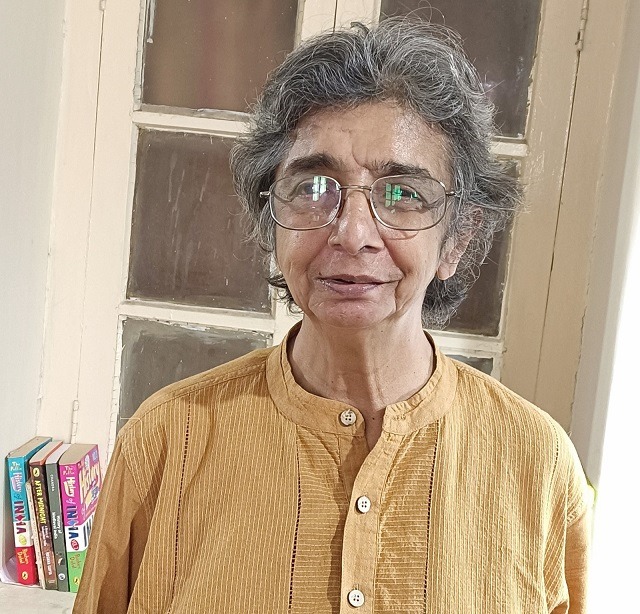
The reign of the Guptas, from the early 4 th century, to that of Harsha Vardhan, ending in the mid-7 th century, can be termed a “golden age”. In the later years of the Gupta dynasty, India was invaded by a branch of Huns, the Hephthalites, or White Huns, from Central Asia. A spectacular victory was won over these invaders by emperor Skandagupta, but in the year A.D. 465 the Huns attacked again to break up the Gupta Empire.
Their leader Toramana, their leader, and his son were fierce warriors, but the empire which they made in North-West India did not last long. In the sixth century a coalition countered their attack and drove the Huns out of India. After the fall of the Guptas, North India was divided into many small kingdoms.
One kingdom in present-day Haryana-Punjab, which helped to drive the Huns out of India, was Thanesar, “The Place of the God”. In the year 606 A.D. Harsha Vardhan of the Pushyabhutis dynasty became ruler of Thanesar. Harsha had a powerful army with thousands of elephants, foot soldiers and horsemen. Harsha Vardhana conquered Hindustan, from Punjab to the borders of Assam.
He moved his capital to Kanauj. It was said that “His elephants were always harnessed and his soldiers never took off their helmets. Like his Gupta predecessors, Harsha tried to conquer all of India, but was defeated by a powerful Chalukya king on the banks of the River Narmada. Central and south India remained divided into many kingdoms.
Harsha built monasteries at sacred places and made rest houses for travelers where they could get shelter, food and drink, and where doctors attended to the poor and sick. Harsha’s reign was troubled with wars, but he was a wise ruler. He worked to make an efficient government and encouraged literature, art and other learned studies. His court poet, Banabhatta, wrote the “Harshacharita”, a biographical account of Harsha.
By this time Buddhism had begun to decline, but Harsha, like Asoka, became a champion of Buddhism. In his court, Hsuan-chang, a Chinese Buddhist monk, like Fa Hien in the Gupta court, wrote down what he saw. In his description of Harsha, Hsuan-chang says the emperor was just and careful in all his royal duties. He was so hard-working that each day was too short for all he wished to do. It was 2 divided into three periods: one part of the day for his tasks of government and two parts for his religious works. Harsha supported Nalanda University, in Bihar, which had been built towards the end of the fifth century.
It was among the wonders described by Hsuan-chang. Its buildings were six storeys high and there was a big temple with towers rising more than three hundred feet. Ten thousand monks lived and studied in the hundred lecture rooms here. Famous works of literature like “The Cloud Messenger” and “Four Seasons”, by Kalidasa, were written here. Aryabhatta the mathematician and astronomer, born in 476 in Pataliputra, was one of the few wise men of the time who taught that the world was not flat but a kind of spinning sphere. He also explained the causes of eclipses of sun and moon. Hindu temples were built with stone and beautifully decorated with carved bricks.
Buddhist halls and shrines were ornamented with figures of the Buddha, lotus flowers and scenes from sacred stories. Parts of these buildings have been preserved. Ships sailed to Malaya, Sumatra, Java and Indo-China with Hindu and Buddhist priests and traders spreading Indian languages and civilization.
Harsha died in 647 A.D. With this the “golden age”, lasting through the Gupta reign, came to an end. Harsha was the last king to rule over a vast empire, for many centuries. Hindustan, both the north and south, became divided into many kingdoms. There were struggles for power and there was confusion. One of the strongest kingdoms was that of the Rajputs in Rajputana and Gujarat in the north- west. They defended the country when the Turkish armies led by Mahmud began their attacks in 1000 A.D.
Lakshmi Rameshwar Rao
(The writer has a Masters in Adult Education from Jamia Milia Islamia. She has many years teaching experience at the school level as also ten years of experience in book publishing and some published writing in newspapers and more students’ books. Lakshmi has retired and lives in Hyderabad.)


